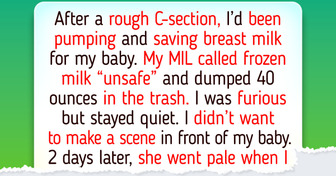Son and dil now have no way back and forth to work and rents are more than most mortgages at present. Yup that's totally going to fix the problem.
I Refused to Help My Son Financially, His Reaction Horrified Me
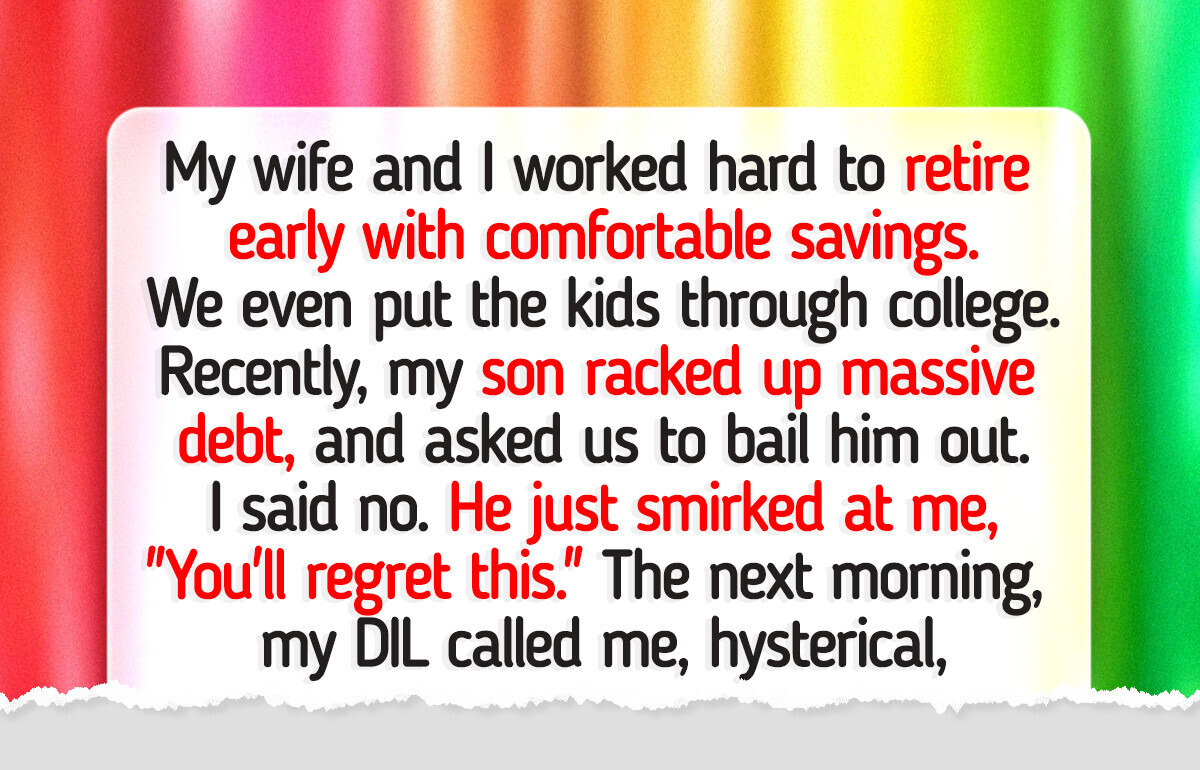
As parents, it’s normal to feel protective towards your kids and help them out whenever they are in trouble, no matter their age. But what happens when the help turns into constant expectations? One of our Bright Side readers, Justin, wrote to us about how his adult son wanted him to help out financially, for the umpteenth time. Justin refused, and what his son did next came as a shock. Scroll down to read about this father’s dilemma and guilt.
Dear Bright Side,
I see so many letters written to you about parents having financial issues with their adult children. I have a similar story to share, though mine may come with a twist.
So, my wife and I worked hard in life to retire early with comfortable savings. Like we are not rolling in money, but what we have gives us a good life. Not just that, we have no debt, own our house and cars, and even put our kids, a son and a daughter, through college. All in all, we have no overhead, and neither do the kids.
Our daughter, Teresa, is well settled and financially secure; our son, Mark, isn't. He and his wife tend to overspend and have fallen into debt a few times. Twice, we bailed them out. Recently, he racked up massive debt again. They go for vacations they can't really afford and spend money like it's water. He asked us to bail him out again, and this time, I said no.
At first, Mark just smirked at me, saying, “If you don’t help me out, you’ll regret it later.” When I refused, firmly, he just stormed out, without saying a word.
The next morning, my DIL called me, hysterical: “Mark’s phone is switched off, and he didn’t come home last night. Is he with you?” I told her what happened, and she accused me of being an uncaring father. I was worried and tried calling Mark, but I couldn’t get through. By now, a million thoughts were running through my head: Where was Mark? Was he okay? I was horrified.
My wife and I were wringing our hands, wondering what to do, and then my grandson called, panicked, telling us, “Dad is back, but he is selling the house and cars.” We rushed over to Mark’s home to find him absolutely calm and controlled. He apologized to me, saying it’s time he “grew up” and behaved like an adult. His plan was to sell the house and cars, cover the debt, and then buy a smaller place with whatever money was left over. I felt a little guilty, of course, but also so very proud.
Finally, he was taking stock of life and taking active steps to correct his mistakes. I wanted to help, but I stopped myself. I just felt, this time, he needed to face the consequences and break the cycle.
Frankly, I just wanted to share this story to show that parents don’t always have to help out or guide children their entire lives. Once your kids are adults, the only way they’ll break the cycle of mistakes is by owning up to the consequences.
I just want an objective opinion. Was I correct in how I handled things? My wife feels I should have given Mark the money, but I feel this way: his life would now run smoothly, even though I feel just a little guilty.
Let me know what you think...
Justin Stuart
Dear Justin, that’s a beautiful and touching story, and thank you for sharing it with us. To answer your question, not only did you make the right decision, you made the hardest one a parent can make. You stepped back so that your son could step up. Here’s why what you did was downright amazing...
- You broke the cycle: Until now, your son had a backup, yours, every time he made financial mistakes. While it’s only natural to want to help your children, this doesn’t teach growth; rather, it encourages dependence. By saying “no,” you didn’t abandon him; instead, you gave him a chance to step up and take responsibility.
- His transformation proves you were right: He may have stormed out and kept silent after your refusal, but it gave him a jolt of reality. He didn’t melt down or panic; rather, he made the tough call to sell the house and cars, showing newfound maturity.
- You set an example of boundaries: Though your son tried to guilt you into helping him, and even your family members added pressure, you didn’t react to manipulation. You stayed calm, made a decision, and stuck to it, setting an example for everyone, including your grandson.
It’s true, parenting doesn’t stop when kids turn 18. That being said, sometimes tough love is needed to push growth. You didn’t abandon your son. You gave him a chance to change and grow as a person.
Financial dramas in families are always a tough call. Just like another reader story of ours, about a woman who is expected to foot her family’s bills, just because she is rich, single, and childless.
Comments
I would do the same. Live below your means is something I have always taught my kids. Have one checking and 2 savings accounts. I applaud what you did. He needs to set the example and recover his own finances.
You empowered your son to dig himself out of the hole. That’s a good thing. What did the, “you’ll live to regret it” line mean? You absolutely did the right thing. Asking for an explanation of the threat might be the next thing to address.
Hopefully your son really means it's and is not saying that to see how you will react. Best of luck to you all
Related Reads
11 People Who Show That Kindness Is What Really Makes Us Strong
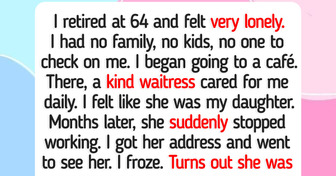
I Refuse to Stop Swimming Even Though Our Neighbor Hates It—Our Rules, Our Way
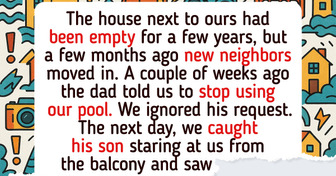
I’m Child-Free, So My Parents Chose My Adopted Brother to Inherit — I Didn’t Let That Slide
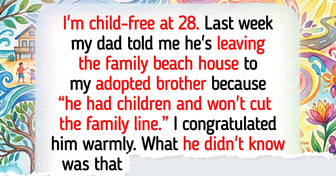
15 Quiet Moments of Kindness That Made the Biggest Impact
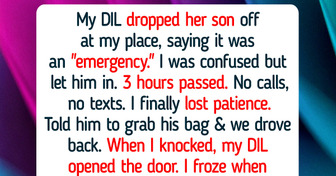
15+ Stories That Prove Some House Guests Are Impossible to Forget
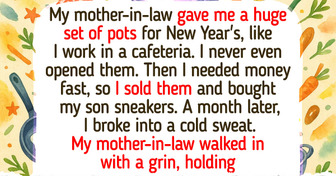
I Refuse to Let My Sister Hijack My Pregnancy Announcement

My Husband Promised to Stop Watching Me Through the Cameras—He Lied
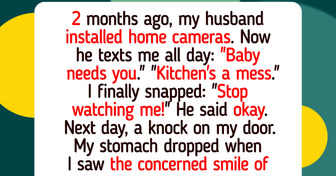
I Refuse to Drop College to Take Care of My Sick Sister, I Am Not Her Nurse
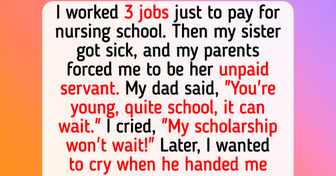
My Cousin Uninvited Me to Save Money—My Petty Revenge Was Absolutely Worth It

My Dad Refused to Come to My Wedding, but I Still Asked for the Gift

12 Real-Life Betrayals That Sound Like Movie Plots
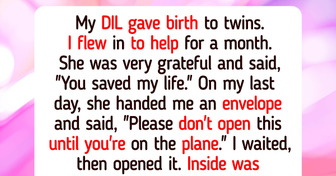
My MIL Threw Out My Breast Milk, So I Made Her Regret It
